10 SEO & Content Audit Tools for Easy Content Analysis
Do you want to build a content marketing strategy that will take your web presence to a new level? Of course you do. But without a good understanding of how your current strategy, content and technology are working together, or what gaps may lie between them, you may never achieve your expected results.
To gain that understanding, you need to dig into your data. Luckily, more and more data is readily available through a variety of SEO and content audit tools, some of which you may already be using. When you dedicate the time to digging into data on your audiences, how your existing content is performing, and how well your web properties are optimized for search engines, major improvements can take shape in a short period of time.
To help you take your strategy and content to the next level, here is a diverse list of ten tools that are worth your attention.
Google Analytics

Google Analytics is one of the most popular content audit tools and for a good reason. It provides comprehensive statistics that help to study visitors’ behavior in details.
You can use Google Analytics to find out which of your posts attract more visitors, and which pages have the highest bounce rate. You can analyze entry and exit points to understand what type of content generates more engagement. Google Analytics will help you to identify the major issues and improve your content marketing strategy.
Web Gnomes
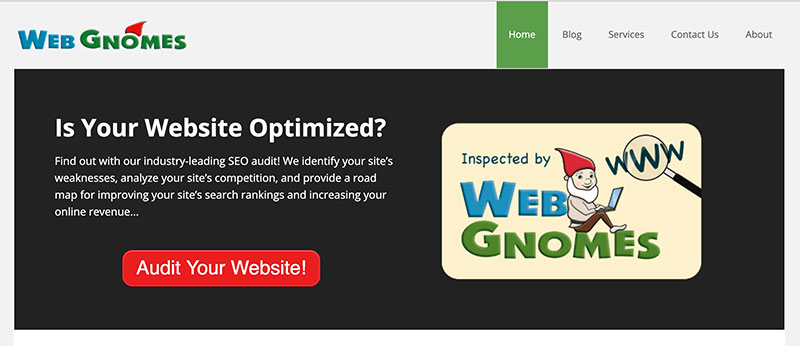
Do you want to know whether your website is perfectly optimized for SEO? You can use Web Gnomes, a service developed by an ex-Google data scientist, to get a comprehensive report for the audit.
The report includes 20 essential on-page parameters related not only to content, but also to the website’s accessibility, URL, and HTML markups. Their service performs an in-depth audit and identifies the issues connected not only with content production but also with on-page SEO.
SEOptimer
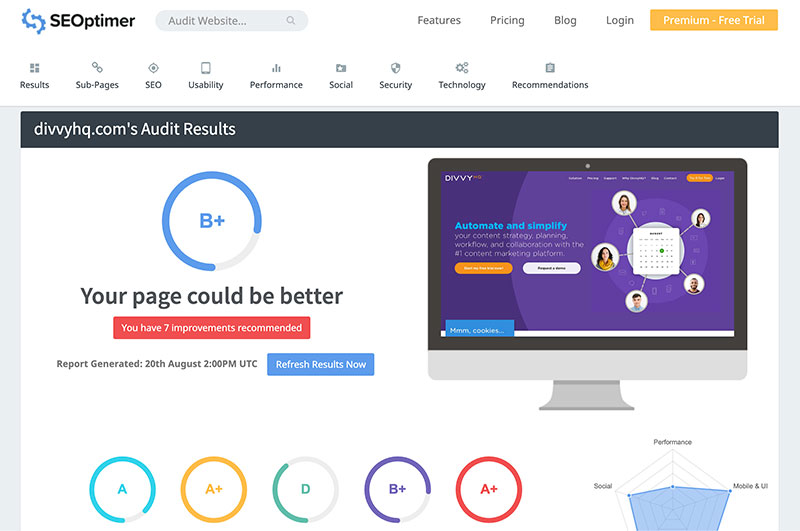
SEOptimer is another great tool that allows checking whether your website is well optimized for SEO, performance, security and usability. Visit this platform to generate an audit report and get recommendations on how to make your site work smoothly. For instance, SEOptimer may recommend you to use your main keywords across the important HTML tags or make greater use of header tags.
All recommendations are prioritized. It makes it easy to understand what problems you should solve immediately, and what problems you can fix later.
SiteAnalyzer
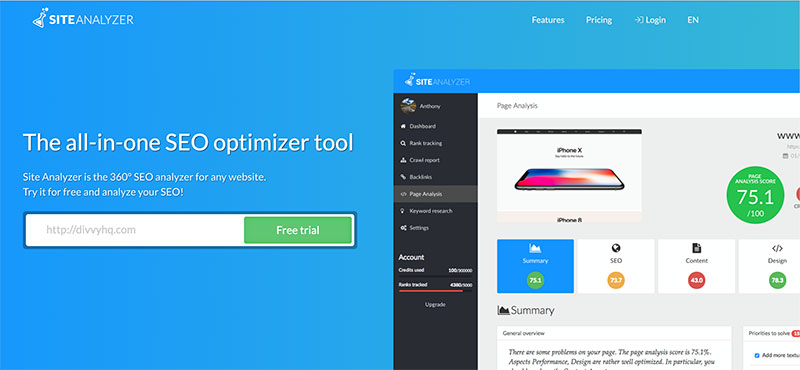
SiteAnalyzer is a tool that you can use to complete an on-page SEO audit and to research keywords in your niche. Also, you can use it to analyze the quality of backlinks and track ranking daily.
SiteAnalyzer presents 71 data points that are organized into five separate groups. Once the audit is completed, the tool produces a report that includes a global score based on accessibility, design, texts, multimedia, and networking scores.
Wpromote’s SEO Audit Tool
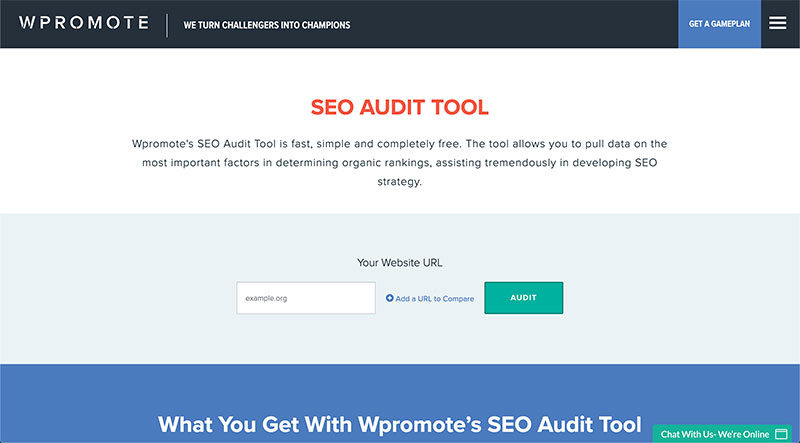
Do you want to be one step ahead of the competition? If yes, use Wpromote’s free SEO audit tool to compare your website with the websites of your competitors.
The tool quickly scans your website, compares it to a competitor’s site, and counts each keyword that causes each site to rank higher in Google. You can use it to find out what keywords work the best for your competitors. And then, you can consider using these keywords to improve your content marketing strategy.
Woopra
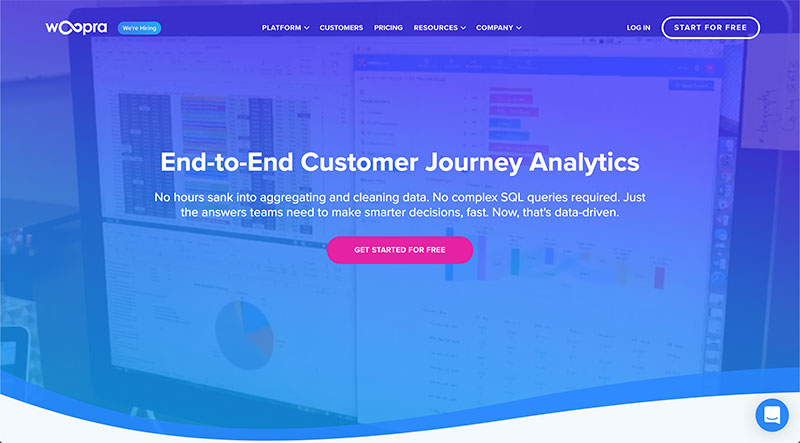
One of the biggest challenge for content creators and marketers is to understand how visitors behave as they interact with your web properties. Woopra is a tool that provides information that clearly explains the user behavior.
In contrast to other content audit tools, Woopra provides robust, real-time, visitor-level analysis. It shows how real people interact with the website. You can use Woopra to map out the customer journey, track all visitor touch points, and help you uncover opportunities to boost your content marketing efforts.
Website Grader
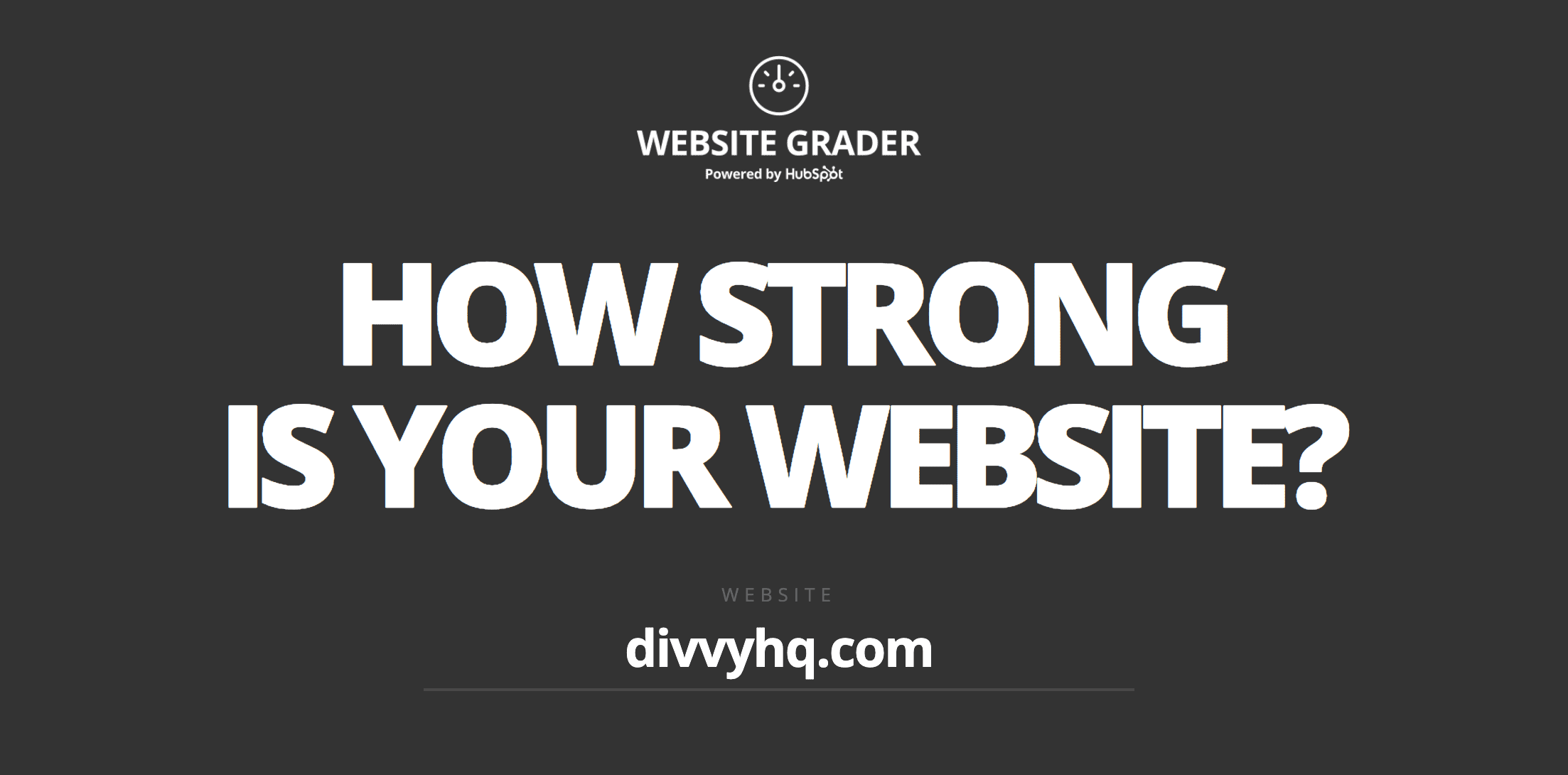
Are you a true expert in content management? Are you ready to use more sophisticated, advanced tools? Try out Website Grader by HubSpot.
Website Grader is an online program that performs an in-depth website audit in less than a minute. You can use it to analyze performance, mobile-friendliness, SEO, and security of your site, landing page, or blog.
Once an audit is completed, the system provides suggestions on how to fix the existing problems. For instance, this tool may recommend you to publish a site map or to reduce meta descriptions to rank higher on Google.
MySiteAuditor
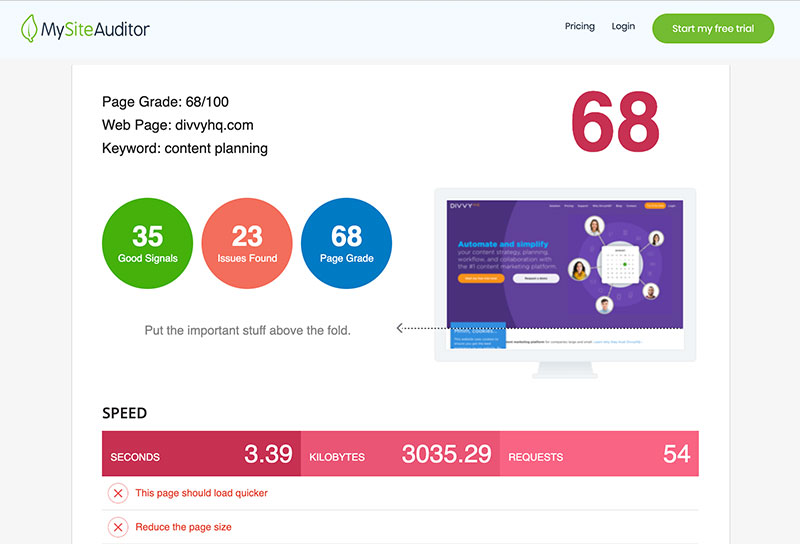
In contrast to other tools, MySiteAuditor analyzes not a whole website, but a specific page. That allows content managers and SEO experts to take a closer look at separate pages and specific keywords to identify even the smallest issues that impact ranking.
MySiteAuditor complements Google’s ranking algorithm. It means that while you use this tool, you can be sure that your content meets the latest SEO requirements.
Also, it is worth mentioning that MySiteAuditor generates accurate, visually appealing reports.The system allows to send the reports via email, or print them out.
Yoast SEO Plugin

Yoast SEO is the most effective WordPress SEO plugin you can find online. It has an intuitive interface and can be used by the newbies in the field of content creation.
This tool provides recommendations on how to improve readability and optimize every separate page for SEO. What about premium features, Yoast SEO plugin offers internal linking suggestions and extra content insights. And most importantly, it provides features that keep content updated for Google’s algorithm.
Website Auditor by Raven
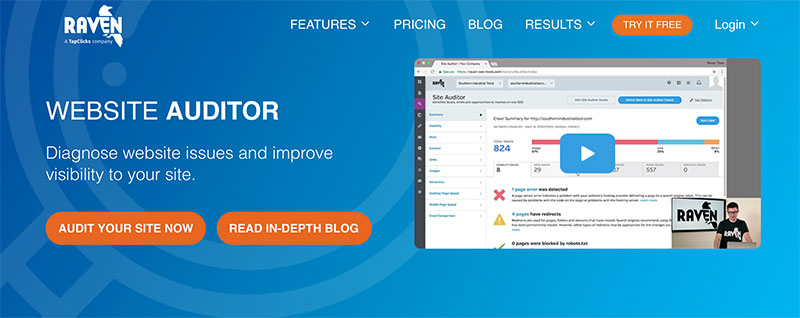
Website Auditor by Raven is an excellent tool for comparing your site crawl and tracking audit progress. You can use it to get an easy-to-follow checklist of suggestions on how to improve your website to drive more organic traffic.
This Raven tool allows integrating audit KPIs into a marketing report. Also, it enables sharing site audit report through an HTML Link with the team members and clients.
In Conclusion
Remember that it doesn’t really matter who produces content for your website: in-house content creator, freelancer from Upwork, or professional writer from TrustMyPaper. And also it doesn’t matter who is responsible for content distribution: you, your colleague or digital agency.
If you want your company to succeed, you should use audit tools for content analysis on a regular basis. This is the only way to define the current problems, close content gaps, and boost your efforts.

